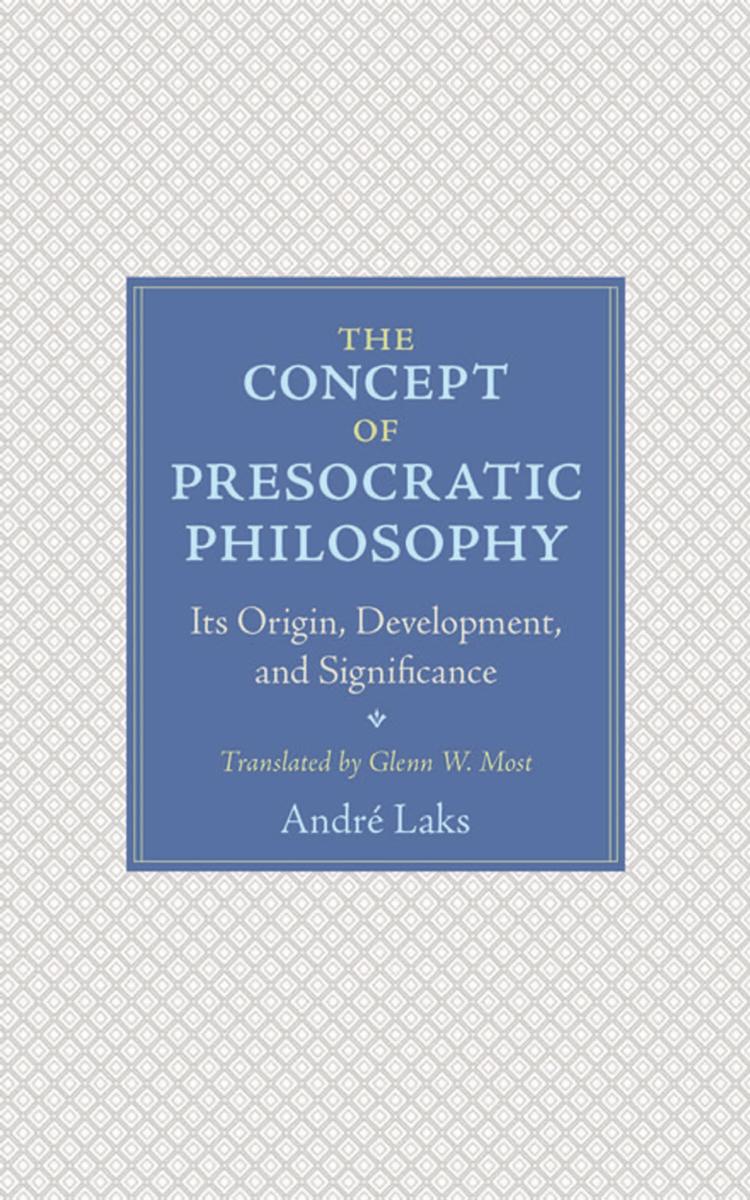The Concept of Presocratic Philosophy: Its Origin, Development, and Significance by André Laks

Author:André Laks [Laks, André]
Language: eng
Format: epub, pdf
ISBN: 9780691175454
Publisher: Princeton University Press
Published: 2017-01-15T07:00:00+00:00
CHAPTER 5
Origins
THE TERM “BREAKTHROUGH” (IN GERMAN, DURCHBRUCH) WAS used by K. Jaspers in his The Origin and Goal of History, first published in German in 1949, to refer to the series of unprecedented political and cultural upheavals experienced by ancient Greece starting in the seventh century BC—upheavals that in 1962 J.-P. Vernant in his Origins of Greek Thought was to call a “mutation.”1 The two terms correspond to different logics. While “mutation” refers to the problematic of discontinuity in history,2 “breakthrough” suggests a trajectory in a certain direction, something like progress or an achievement that was determinant for a given history and that in one way or another continues in its effects until the present day.3 Thus Jaspers’s term, in conformity with the title of his book, suggests a teleological and axiological dimension that is absent from “mutation.”
Jaspers had emphasized—indeed, this was his point—that other “breakthroughs” had taken place besides the Greek breakthrough, more or less at the same time in other places, in India, in China, in Palestine, under radically different conditions and with completely disparate effects. On the scale of the historical longue durée (to use F. Braudel’s term), such a synchronicity could be considered absolute: that is why he called the first millennium before the Christian era an “axial” age—an epithet that is less than fully transparent and for which Eric Weil suggested substituting “bifurcatory,” to describe the moment in which the history of humanity starts to go off in a new direction.4 Jaspers’s idea has been challenged, first of all because his construction does not grant the place they deserve to the great civilizations of writing (the Sumerian-Akkadian and Egyptian civilizations, which go back to the third millenium),5 but also and above all because of its teleological implications. This is the very approach that Jacob Burckhardt, writing against the use of teleology in history by the philosophers of history and closely linking the concern for origins with the position of an ending, had refused in his On the Study of History (Über das Studium der Geschichte):
The philosophers of history view the past as an antithesis and preliminary stage on the way to us as to what is more developed. We view what repeats itself, what is constant and typical as being something that resonates in us and is understandable. Those others are afflicted with speculations about beginnings and hence should really also speak about the future. We can do without those doctrines about beginnings, and no doctrine of the ending should be required of us.6
However, it is not certain that a historian should do without any teleological presuppositions whatsoever, or even that he would be capable of doing so, at least, in Kantian terms, at a reflective and not at a determinant level.7 With regard to the Greeks at any rate, it is evident that the relation that “we” have to “them” weighs heavily on what we are led to say about them. For the fact is that, whether we like it or not, we are
Download
The Concept of Presocratic Philosophy: Its Origin, Development, and Significance by André Laks.pdf
This site does not store any files on its server. We only index and link to content provided by other sites. Please contact the content providers to delete copyright contents if any and email us, we'll remove relevant links or contents immediately.
| Africa | Americas |
| Arctic & Antarctica | Asia |
| Australia & Oceania | Europe |
| Middle East | Russia |
| United States | World |
| Ancient Civilizations | Military |
| Historical Study & Educational Resources |
The Daily Stoic by Holiday Ryan & Hanselman Stephen(3300)
The Fate of Rome: Climate, Disease, and the End of an Empire (The Princeton History of the Ancient World) by Kyle Harper(3055)
People of the Earth: An Introduction to World Prehistory by Dr. Brian Fagan & Nadia Durrani(2727)
Ancient Worlds by Michael Scott(2682)
Babylon's Ark by Lawrence Anthony(2671)
The Daily Stoic by Ryan Holiday & Stephen Hanselman(2569)
Foreign Devils on the Silk Road: The Search for the Lost Treasures of Central Asia by Peter Hopkirk(2455)
India's Ancient Past by R.S. Sharma(2450)
MOSES THE EGYPTIAN by Jan Assmann(2411)
The Complete Dead Sea Scrolls in English (7th Edition) (Penguin Classics) by Geza Vermes(2277)
The Earth Chronicles Handbook by Zecharia Sitchin(2226)
Lost Technologies of Ancient Egypt by Christopher Dunn(2223)
24 Hours in Ancient Rome by Philip Matyszak(2078)
Alexander the Great by Philip Freeman(2064)
Aztec by Gary Jennings(2021)
The Nine Waves of Creation by Carl Johan Calleman(1915)
Curse Tablets and Binding Spells from the Ancient World by Gager John G.;(1860)
Before Atlantis by Frank Joseph(1849)
Earthmare: The Lost Book of Wars by Cergat(1823)
